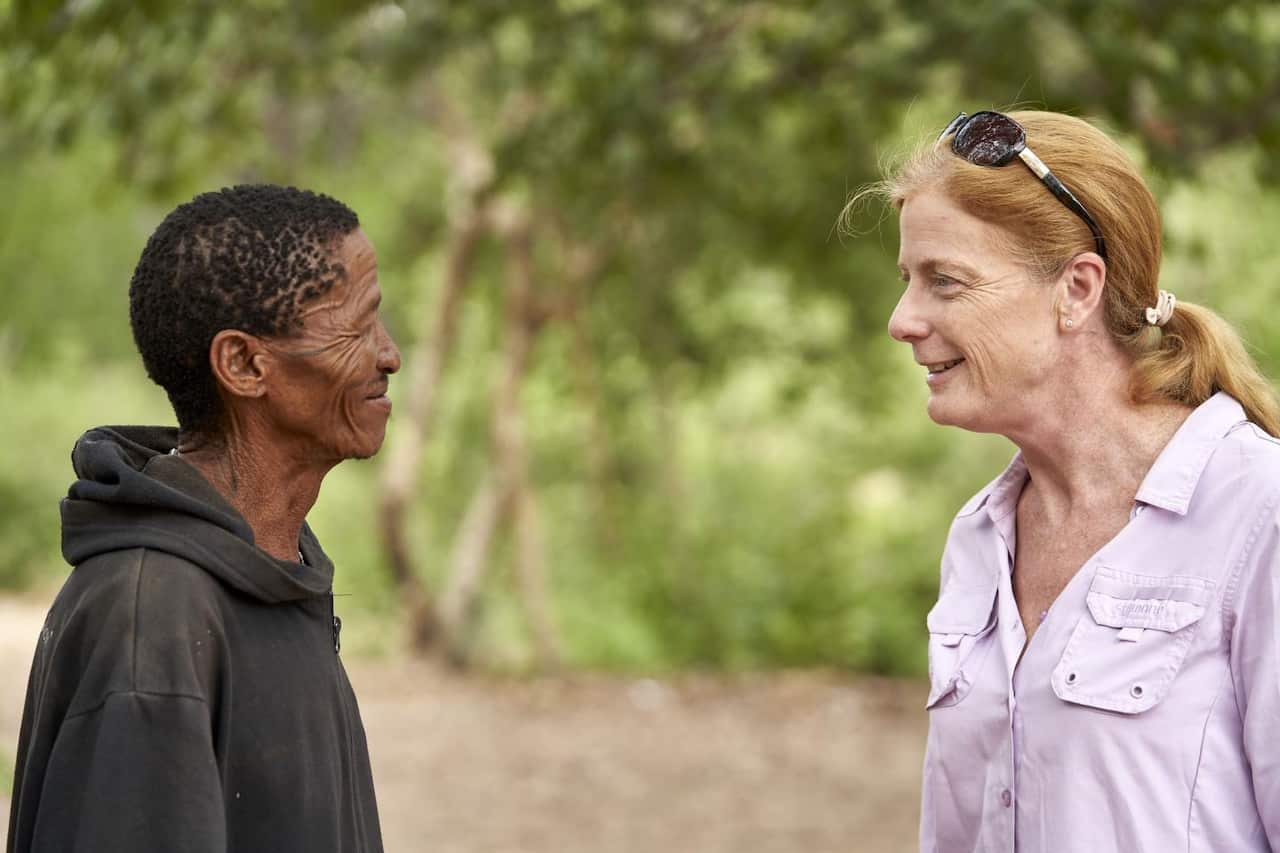A group of scientists, led by Australian researchers, have pinpointed the location where humans first walked the earth.
The birthplace of the human race was the Makgadikgadi-Okavango palaeo-wetland in Botswana, Namibia and Zimbabwe, researchers have discovered, approximately 200,000 years after the first human is believed to have existed.
At that time, the now barren area - dominated by desert and salt plains - was a wetland roughly the size of New Zealand, Sydney-based lead researcher Vanessa Hayes said.
The groundbreaking research, published on Tuesday, looked at the genetic code of mitochondria, which is inherited from our mothers, of a thousand people living in Southern Africa to narrow down the location.

“It has been clear for some time that anatomically modern humans appeared in Africa roughly 200,000 years ago. What has been long debated is the exact location of this emergence and subsequent dispersal of our earliest ancestors,” Professor Hayes said.
“Mitochondrial DNA acts like a time capsule of our ancestral mothers, accumulating changes slowly over generations. Comparing the complete DNA code, or mitogenome, from different individuals, provides information on how closely they are related.”
The researchers, from the Garvan Institute of Medical Research, are hoping to use the study to better understand how a person's genetics affect whether they are likely to contract a range of diseases.
"Both family history and African ancestry points back to genetics and we've been struggling internationally to really pinpoint where does this suppressive disease come from," Professor Hayes said.
Why did early humans migrate?
The study not only discovered where the first humans were born, it also investigated why they left.
According to the new research, the wetland allowed a stable ecosystem for humans to thrive for approximately 70,000 years. After that point, however, our ancient ancestors migrated in two main groups; one moved northeast, another southwest, and the remaining stayed put.
Co-author Axel Timmermann, from South Korea's Pusan National University, believes it may have been changes to the climate that spurred humans to move on.
“Our simulations suggest that the slow wobble of Earth’s axis changes summer solar radiation in the Southern Hemisphere, leading to periodic shifts in rainfall across southern Africa,” he said.
“These shifts in climate would have opened green, vegetated corridors, first 130,000 years ago to the northeast, and then around 110,000 thousand years ago to the southwest, allowing our earliest ancestors to migrate away from the homeland for the first time.”
Descendants of the original group can still be found in the Kalahari region, a desert stretching across parts of Botswana, Namibia and South Africa, Professor Hayes said.

